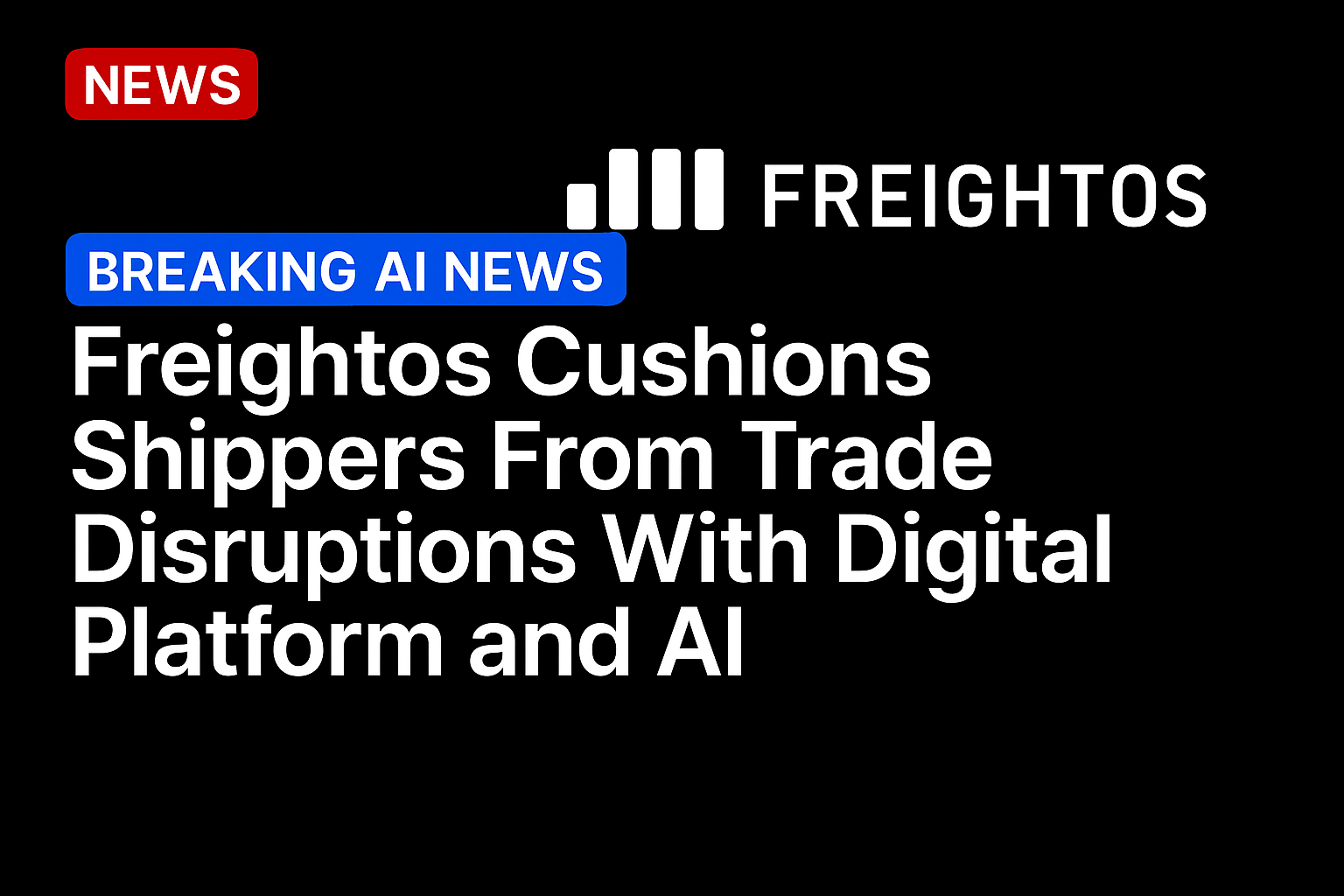Today’s uncertain macro environment is increasingly revealing the growing pains of legacy industries.
After all, against a backdrop where global trade is buffeted by geopolitical tensions, evolving tariffs and shifting digital transformation trajectories, the limitations of traditional processes and paper-based workflows can be seen in stark relief, particularly for industries that have long depended on opaque pricing, manual transactions and institutional inertia.
Sectors once thought resilient, like logistics, freight forwarding and shipping, are discovering that their decades-old operating models no longer align with a world defined by volatility and data.
And yet, this very turbulence has created fertile ground for a new generation of digital disruptors. That was the message shared by Freightos CEO Zvi Schreiber during the company’s second-quarter earnings call on Monday (Aug. 18), marking its 22nd consecutive quarter of record high transaction volumes.
The company’s bookings reached 397,000, comfortably exceeding internal targets of 380,000 to 385,000, and resulting in a transaction volume growth of 26% year over year. Gross booking value (GBV) soared 56% to $317 million.
“Amid global trade uncertainty and fluctuating market demands, Freightos has demonstrated exceptional resilience through our platform’s unique capabilities and strategic adaptability,” Schreiber said.
“Freightos continues to solidify its position as a leader in the end-to-end digital transformation of the international freight industry, achieving robust second-quarter results with a 31% year-over-year revenue increase. We have revised our full-year Transaction outlook upward, reflecting our confidence in sustained growth,” he added.
Read more: Freightos’ 20th Consecutive Quarter of Record Transactions Shows Freight’s Digital Appetite
Digital Freight as Core Infrastructure
Historically, booking international freight was a labyrinthine process, involving countless emails, opaque rate sheets and middlemen brokering deals without transparency. For shippers, unpredictability wasn’t just a nuisance but a cost center. For carriers, inefficiency limited their ability to dynamically allocate capacity.
By digitizing these workflows, Freightos provides the liquidity and agility that volatile markets demand. Its SaaS-driven Enterprise suite automates rate negotiations, integrates procurement processes, and offers real-time visibility. For customers navigating tariff shocks or shipping lane disruptions, this isn’t just a value-add but can be a survival tool.
Much like how PayPal once digitized payments or Bloomberg terminals redefined financial data, Freightos is embedding itself into the plumbing of global trade, executives told investors.
During Q2, Freightos onboarded 75 new carriers, including marquee additions like China Airlines, and saw unique buyer users rise to 20,200.
Critically, this isn’t just about scale. It’s about resilience. In a macro environment where shipping lanes can close overnight (as seen with the Red Sea crisis) and freight demand can whiplash, having a deep, digitally connected ecosystem cushions both shippers and carriers from shocks. Legacy freight forwarders, by contrast, remain siloed, dependent on human negotiations and fragile bilateral relationships.
See also: Trump’s Global Tariffs Position CFOs as New Supply Chain Architects
AI, Data and Operational Resilience
Freightos emphasizes its use of artificial intelligence (AI) and proprietary data as its competitive edge.
According to company data, the Freightos Enterprise suite offers AI-driven insights that helped 90% of enterprise users reroute shipments during the Red Sea crisis, minimizing disruption. The Freightos Baltic Index (FBX) and Freightos Air Index (FAX) provide real-time benchmarks for container and air cargo pricing, reducing the notorious opacity of freight markets.
The productivity gains are substantial. Freightos claims its AI tools reduce manual labor by 70%, freeing logistics professionals from administrative minutiae so they can focus on strategic decision-making. For an industry plagued by inefficiencies, that’s transformative.
This data-first approach also establishes Freightos as a trusted authority.
By becoming the reference standard for pricing, its indices don’t just inform customers, they shape market behavior. It’s a dual role as both platform operator and data provider, akin to the CME in commodities or Nasdaq in equities.
The lesson extends beyond logistics. Today’s uncertain macro environment is a stress test for legacy industries. Those clinging to old models will face growing pains that become existential threats. Those embracing digitization, data, and automation will not just survive — they could redefine the rules of the game.
Source: https://www.pymnts.com/




